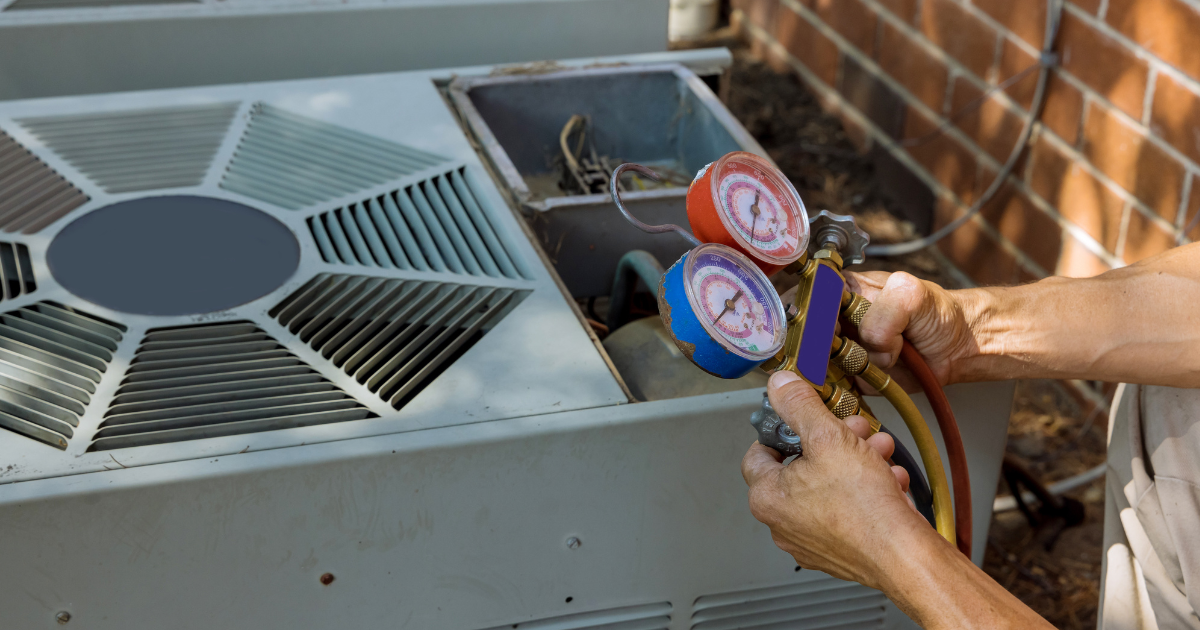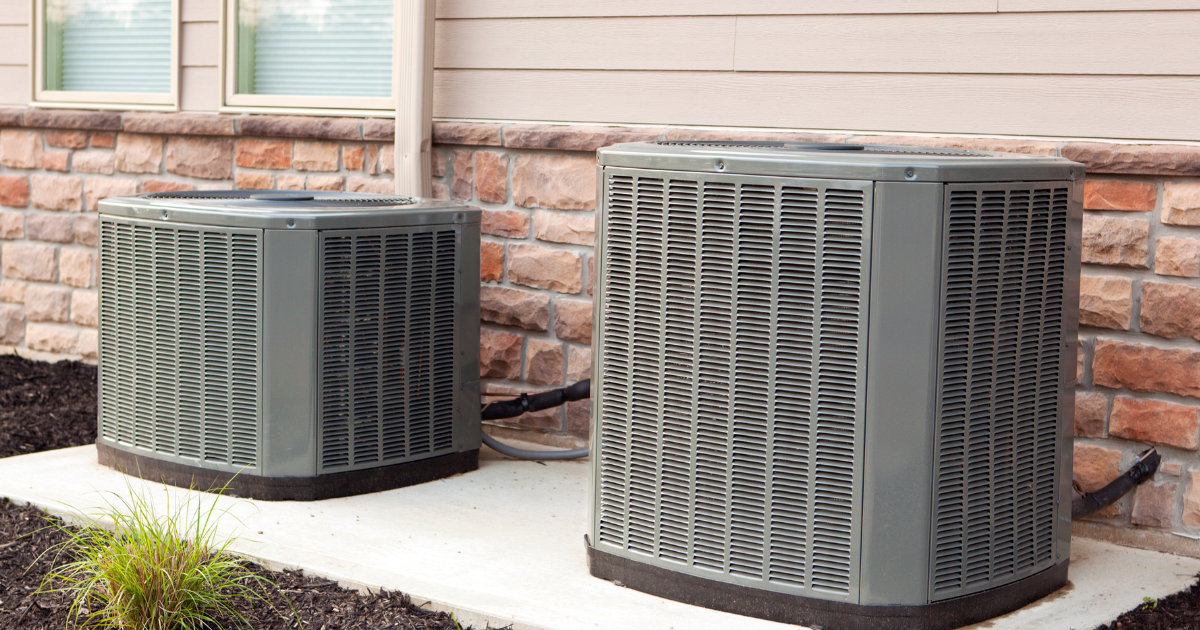Pay Attention To SEER Ratings When Choosing An HVAC Unit
Purchasing and installing a new HVAC system can make a significant improvement in your home’s comfort. Before you invest in a new system, though, it’s important to do your research. Ultimately, you want to be sure that the system you purchase provides optimal value for the money you spend. One of the most value-building features of HVAC systems is their efficiency. A more efficient system will help you significantly lower your heating and cooling costs during the system’s lifetime while helping to keep your Riverside home more consistently comfortable. One way to determine the efficiency of your HVAC system, specifically your air conditioner, is to look at the SEER rating of the system.
SEER DEFINED
SEER is an acronym that stands for seasonal energy efficiency ratio. The SEER rating scale ranges from 14 to 25, with many systems falling in the 15 to 18 range. An air conditioner’s SEER rating is calculated by determining its heat-removing capacity and dividing that by the amount of electricity required to remove that volume of heat. At first glance, it may seem odd that an air conditioner is rated based on the heat it removes instead of the cool air it delivers. However, heat removal is an air conditioner’s main job. Using refrigerant, an air conditioner traps heat and then expels that heat outside. Therefore, heat removal, which is measured in BTUs, is an important part of the efficiency calculations for an air conditioner.
MINIMUM SEER RATING
Any new air conditioner sold today has a SEER rating of at least 14. The federal government established the SEER rating system in 1992. At that point, the minimum SEER was only 10. As recently as five years prior to that, the average SEER rating for household systems was below 9. As a consumer, this should instill confidence that any system you select from Dragonfly Heating & Cooling will help you stay comfortable and save money. At the same time, it’s important not to be fooled by marketing gimmicks that make a system with a low rating seem like an advanced system. A smart consumer knows to look at the SEER rating, which is calculated using an objective formula, to make sure they’re truly getting a good value.
COST AND EFFICIENCY
When buying a new system, it’s best to opt for the most efficient system that you can fit into your budget. What savings will you actually realize, though, when you choose a more efficient system? One factor that determines cost savings is the size of your air conditioner. A larger unit from Dragonfly Heating & Cooling will tend to see greater energy savings when you upgrade to a more efficient unit, though the overall difference between sizes is negligible. As a rule of thumb, you will likely see a reduction of 7% in overall energy costs for every higher SEER rating level. Important to note is the expected savings over the unit’s lifetime instead of only the savings you can expect to see in a single year.
A WORD ABOUT AFUE
As a savvy homeowner, it’s important to understand what different HVAC terms mean so that you can make an informed HVAC buying decision. When researching the efficiency of an HVAC system a term that will often appear alongside a SEER rating is something called an AFUE rating. AFUE stands for annual fuel utilization efficiency. This is the rating given to measure the efficiency of furnaces. Unlike a SEER rating, which measures how much heat an air conditioner can remove with a certain amount of energy, an AFUE rating measures how much heat a furnace can produce using a particular amount of energy. If you’re having Dragonfly Heating & Cooling replace your entire HVAC system, you’ll want to pay close attention to both the SEER and AFUE ratings to ensure you get the most efficient system for your home.
DIFFERENT TYPES OF SYSTEMS
In some ways, it can be difficult to compare different air conditioners, even when you know the SEER rating of each system. That’s because different categories of systems offer vastly different efficiencies, meaning that you need to be aware of the various system types to buy a system that best meets your needs. First, you have the standard air conditioner that works alongside a standard furnace. The main way to increase efficiency with a standard air conditioner is to opt for one with a variable-speed fan. You can also select from a variety of air-source heat pumps. Although these typically don’t offer increased efficiency in the summer, they offer much greater efficiency in the winter thanks to the way in which they bring heat into your home. Finally, there are ground-source heat pumps that are, by far, the most efficient and longest-lasting systems available.
YOUR ROLE IN EFFICIENCY
Although the type of system you choose plays a big role in the efficiency you can expect, the day-to-day care of your system can also help improve or harm its efficiency. One great way to improve efficiency is to install and properly use a programmable thermostat. By making sure that your HVAC system isn’t running at full capacity when you’re not home, you can save a large amount of energy over the course of a year. Additionally, you need to make sure to replace your system’s air filter when it’s dirty. Experts recommend checking the state of your air filter at least once per quarter and replacing it as often as necessary. Finally, make sure to schedule regular maintenance with Dragonfly Heating & Cooling to keep your system operating at peak efficiency.
LIFE EXPECTANCY OF A SYSTEM
When purchasing a high-efficiency HVAC system, it’s important to consider the initial investment stretched over the lifetime of the system. If you can’t get a solid return on your investment based on the increased efficiency of the system, it may make sense to opt for a less-expensive system that’s slightly less efficient. One great thing about ground-source heat pumps is that, in addition to being exceptionally efficient, they also last far longer than any other type of HVAC system. Therefore, while the upfront cost for a ground-source heat pump is significant, you’re much more likely to see a return on your investment over the lifetime of the system, assuming that you remain at the home where it’s installed for several years.
NEW OR OLD, WE’VE GOT YOU COVERED
At Dragonfly Heating & Cooling, we take pride in helping our customers select efficient and effective HVAC systems that will keep them comfortable and help them save money. In addition to HVAC installation, we also offer maintenance and repair for both air conditioners and furnaces. We can also install new thermostats to help your existing system operate more efficiently. For over 10 years, people throughout the region have taken advantage of our top-notch customer service and fair prices. That’s one reason why we consistently receive five-star reviews from our customers. With only NATE-certified technicians on staff, you can be confident that we’ll be able to accurately address any home comfort need that you have. To learn more about selecting a new HVAC system, contact us today.


